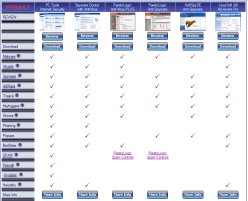|
Twitter has taken
swift security action in an attempt to help protect users from a potential web
security threat, highlighting good password practices.
The company announced recently that Twitter had reset passwords of users who may
have been the victim of password theft via a 'torrent' related set of
websites and forums.
The Twitter password reset was performed to help protect users who may have been
affected, and other users as a further precaution.
The password reset was done, in what we believe to be good password
practice, by Twitter after suspicious activity was reportedly detected during their
monitoring of user activity generally.
It is believed the monitoring related to a surge of followers for specific user
accounts.
This security password practice by Twitter to both monitor and then reset
the passwords is a timely reminder for users to observe good password practices as
they use sites on the internet.
You may refer to our Top Security Tips for some good security
practices for users generally.
Good Password Practices: User
passwords are a very important part of account security, whether it is on the
internet or elsewhere.
Some good password practices/tips include:
- Resetting passwords periodically, or whenever you think there is a
chance they may have been compromised.
- Use different passwords for different accounts.
- Avoid passwords that relate to you, that someone may be able to guess. For
example avoid pet names etc.
- Use strong and cryptic passwords, with a combination of numbers, letters
with upper and lower case mix.
- Make the password long, at least 8 characters.
- Don't share your password with others and beware of Phishing requests.
Another good password practice concerns EMail. EMail is often used for
password information on many separate accounts that users may have on the
internet.
For this reason your EMail password is extremely
important and we recommended some of the good practices mentioned above are of
particular importance.
The most important tip however is resetting passwords
frequently.
|
Welcome to
FreeSystemScan.com
System Security for your peace of
mind

















